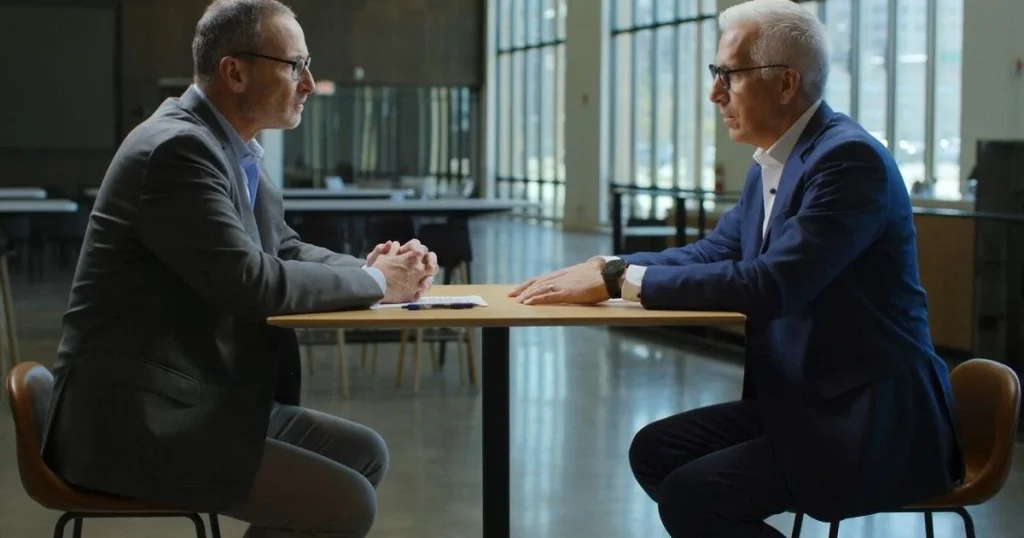Listen to the article
The pandemic left key lessons on transparency and misinformation, according to Dr. Alexander Garza, chief community health officer at SSM Health. At a recent conference in St. Louis focused on regional challenges and opportunities, Garza emphasized that healthcare leaders must continue applying what they learned during the COVID-19 crisis.
“The one thing we learned through COVID was that transparency is absolutely critical when you’re dealing with a public health crisis,” said Garza, who previously led the St. Louis Metropolitan Pandemic Task Force during the height of the outbreak. The task force became a central source of information as the region navigated the unprecedented health emergency.
Garza highlighted how the pandemic revealed deep flaws in public health communication strategies, particularly as misinformation spread rapidly across social media platforms. Healthcare professionals found themselves not only fighting the virus but also battling dangerous falsehoods about treatments, vaccines, and public health guidelines.
“We were playing catch-up from the very beginning,” Garza explained. “By the time we could respond to one piece of misinformation, three more had already taken its place.” This dynamic created significant obstacles for healthcare providers trying to implement evidence-based interventions and promote vaccination efforts.
The St. Louis Metropolitan Pandemic Task Force, formed in March 2020, represented an unprecedented collaboration between competing healthcare systems including BJC HealthCare, Mercy, SSM Health, and St. Luke’s Hospital. The initiative demonstrated how regional cooperation could help address complex public health challenges when individual institutions combined their resources and expertise.
According to Garza, this model of collaboration offers valuable lessons for addressing other health crises beyond infectious disease outbreaks. “The framework we created during COVID can be adapted to tackle other public health challenges like the opioid epidemic, mental health access, or healthcare disparities,” he said.
Healthcare experts at the conference noted that the pandemic exposed significant vulnerabilities in the American healthcare infrastructure, from supply chain weaknesses to staffing shortages. Many hospitals in the St. Louis region continue to struggle with workforce retention, as burnout from the pandemic led to unprecedented numbers of healthcare workers leaving the profession.
“We’re still feeling the aftershocks of COVID in our healthcare workforce,” said Garza. “Building resilience into our systems isn’t just about having enough ventilators or PPE—it’s about supporting the people who make healthcare possible.”
Beyond operational challenges, the pandemic highlighted deep inequities in healthcare access and outcomes. Data collected during the crisis showed that COVID-19 disproportionately affected communities of color and economically disadvantaged neighborhoods throughout the St. Louis region.
“The disparities we saw weren’t created by COVID—they were just illuminated by it,” Garza emphasized. “Now we have both the data and the moral obligation to address these longstanding inequities.”
Looking forward, Garza suggested that rebuilding public trust in healthcare institutions must be a priority. Surveys indicate that confidence in public health agencies and healthcare systems declined during the pandemic, particularly in communities where misinformation gained traction.
The solution, according to Garza, involves proactive communication strategies that anticipate information needs before crises emerge. “We need to establish credible sources of health information and build those relationships with communities before the next emergency,” he said.
Industry analysts note that hospitals and healthcare systems nationwide are reevaluating their crisis communication protocols based on pandemic experiences. Many are investing in digital outreach capabilities and community partnerships to create more resilient information networks.
As the St. Louis region recovers from the pandemic’s impact, healthcare leaders emphasized that preparation for future public health emergencies must include stronger coordination between government agencies, healthcare providers, and community organizations.
“If there’s a silver lining to what we experienced,” Garza concluded, “it’s that we now understand how critical these partnerships are. The question is whether we’ll maintain and strengthen them before we face the next crisis.”
Fact Checker
Verify the accuracy of this article using The Disinformation Commission analysis and real-time sources.




14 Comments
Insightful comments from Dr. Garza. Transparency and misinformation were huge challenges during COVID-19. Strengthening public health communication strategies should be a top priority going forward.
Absolutely. Healthcare professionals had to work overtime just to correct dangerous myths and rumors. Robust plans to quickly address misinformation are essential.
Interesting insights from Dr. Garza on the importance of transparency and the challenges posed by misinformation during the COVID-19 crisis. Building public trust through clear, credible messaging is so important.
Agreed. Proactive plans to quickly address dangerous falsehoods should be a key part of any public health emergency response.
The pandemic revealed major vulnerabilities in how information is shared, especially online. Strengthening public health communication strategies is a crucial lesson learned.
Interesting to hear how the pandemic task force became a central source of information in the St. Louis region. Building that kind of trust and credibility with the public is so important.
Transparency is so vital during public health emergencies. Healthcare leaders clearly need to prioritize clear, consistent communication to combat the spread of dangerous misinformation.
Absolutely. Rapid response capabilities and fact-based messaging should be a core part of pandemic preparedness plans going forward.
The pandemic exposed major flaws in public health communication. It’s crucial that lessons are learned to better prepare for future crises. Transparency and fact-based messaging are key.
Agreed. Healthcare leaders must continue applying the insights gained during COVID-19 to strengthen crisis response capabilities and rebuild public trust.
It’s good to see healthcare leaders highlighting the need for transparent communication during public health crises. Misinformation can be incredibly harmful, so focusing on clear, fact-based messaging is crucial.
Agreed. The pandemic revealed major vulnerabilities in how information is shared, especially online. Proactive steps are needed to combat the rapid spread of falsehoods.
Playing catch-up on misinformation must have been incredibly challenging for healthcare professionals. Developing more proactive strategies to address falsehoods is critical.
Transparency and misinformation were clearly major issues during the pandemic. It’s good to see healthcare leaders highlighting these lessons and the need to strengthen communication strategies.